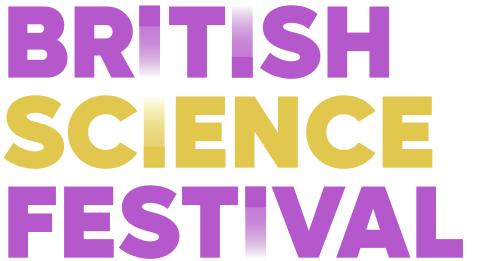The British Science Association (BSA) is delighted to announce its full list of Scientific Section Presidents for 2024.
The Scientific Section Presidentas are science professionals who play a crucial role in shaping the British Science Festival programme each year. From top names in British science to up-and-coming researchers tackling some of the greatest scientific challenges of our time.
The BSA has 16 Scientific Sections encompassing every aspect of science, ensuring that the talks, installations and events at the British Science Festival capture the most exciting cutting-edge research and innovation from across the UK.
Each year, the Presidents are nominated for making a significant contribution to their scientific field.
The best part? The Section Presidents will be marking the start of their presidency by presenting their cutting-edge research at the British Science Festival 2024, taking place 11 – 15 September, hosted by the University of East London. Prepare to hear about everything from battling superbugs to mental health in the digital age.

Congratulations to:
Agriculture and Food: Eric Holub, University of Warwick
- Eat wise, cook with MAGIC: find out how old-school genetics, cooking from scratch, working with farmers, and systems thinking could help our food system better serve public health using seed, soil and British sunshine.
Archaeology and Anthropology: Chika Watanabe, University of Manchester
- A recipe for disaster: explore the different ways of making disaster preparedness more effective and engaging for children using their favourite past time – play.
Biological Sciences: Aoife McLysaght, Trinity College Dublin
- Everything you ever wanted to know about genetics: join Aoife and comedian Helen Keen to hear more about the latest cutting-edge research in the field of genetics.and to answer your gene-related questions.
Chemistry: Saiful Islam, University of Oxford
- Green energy materials on the atomic scale: with the aid of 3D glasses and stunning crystallography imagery, discover a world of materials science, which is crucial for the care of our planet.
Economics: Stephanie von Hinke, University of Bristol
- Nature vs Nurture?: discover how incorporating molecular genetic data into new and existing economics and social science datasets can help us gain a better understand of what shapes our life chances.
Education: Florence Schechter, The Vagina Museum
- Screaming, crying, showing up: from relationships and gender to sexuality and reproductive health, learn how to show up for what you believe in and appreciate how in an increasingly polarised world, you can fight for what you believe in and actually get it done.
Engineering: Yasmin Ali
- Powering up, sustainably: find out where we get energy from, how it is moved and used around the world – and why we need to understand the whole system if we want to transition towards a clean, green future.
General: Ezenwa Olumba, Royal Holloway University
- Where is my mind?: explore the phenomenon of ‘Cognitive Immobility’ a psychological effect where your mind remains in your ancestral home whilst you’re physically in your new home
Geography and Geology: Kate Edwards, Geogrify
- When digital worlds meet the real world: learn how geography can be an incredibly powerful tool to help navigate complex issues, including geopolitics, as companies strive to make inclusive content that maximises the global reach of their creative visions.
History of Science: MultakaOxford, Oxford University’s History of Science Museum and Pitt Rivers Museum
- Meeting points in the history of science: join the award-winning volunteer team bringing communities together by sharing the rich knowledge and heritage of people from all over the world who have made their home in Oxford and the UK.
Mathematical Sciences: Sophie Carr, Bays Consulting
- Decoding the Maths of Society: enter the exciting world of Bayesian statistics, exploring its effect on your life, from the often-hidden bias in data all around us to the decisions that are made for us.
Medical Sciences: Jessica Blair, University of Birmingham
- Battling Superbugs: hear about how bacteria become resistant to antibiotics and the role of efflux pumps, tiny molecular machines that pump substances out of bacterial cells causing antibiotic resistance.
Physics and Astronomy: Nic Bonne, University of Portsmouth
- Touching the stars: explore some of the multi-sensory techniques being developed inspired by his current astronomy research in galaxy evolution and formation.
Psychology: Rhiannon Turner, Queen’s University Belfast
- Crossing the social divide: join Rhiannon to explore the many benefits of stepping outside your comfort zone and how it can boost academic achievement, problem solving, creativity, wellbeing, and environmental behaviours.
Science and the Arts: Camille Baker, Royal College of Art
- Mammary Mountain: join Camille to take a deeper look into her most recent work, an immersive VR experience created with people experiencing the trauma of breast cancer treatment.
Sociology and Social Policy: Ian Tucker, University of East London
- Mental health in the digital age: join Ian and Ainul Hanafiah as they explore the key challenges and successes raised by this approach to mental health care.
The full British Science Festival 2024 programme will be launched in late June.
Connect with us on social media to stay up to date with the latest news and to know when to book your FREE TICKETS!
Follow us on X/Twitter and Like us on Facebook
